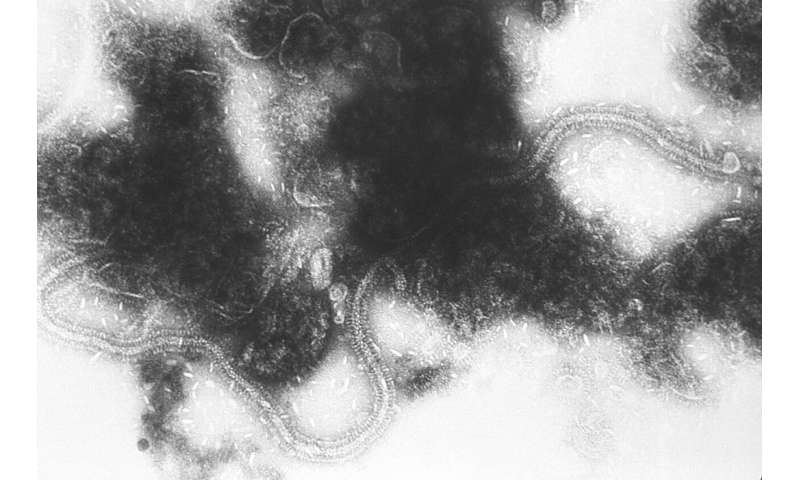
A team of researchers from Nationwide Children’s Hospital in the U.S. and Universidad de Málaga in Spain has found some clues that might explain why some young children develop stronger respiratory syncytial virus (RSV) infections than other children. In their paper published in the journal Science Translational Medicine, the group describes their study of children with and without RSV infections and what they learned about the disease caused by the virus.
RSV is a common ailment in young children, particularly in infants. It accounts for the most hospitalizations of newborn babies in developed countries. And like COVID-19, most infections are mild. Unfortunately, in some cases, it can lead to very serious complications, and sometimes death. In this new effort, the researchers sought to learn more about such cases with the hope of identifying factors that might prevent them from occurring.
Prior research has suggested that exceptional cases of RSV infections may be due to age, viral load or other unknown factors. One factor most agree on is that they are most likely tied to an abnormal immune response.
In this new effort, the researchers collected blood samples from 125 infected children and 65 children who were not infected and who were otherwise healthy. Each sample was studied for viral load, level of white blood and other immune cells, presence of other viruses and gene expression of molecules such as interferon that are part of an immune response.
The researchers were surprised to find that children with milder symptoms tended to have heavier viral loads than those with more serious symptoms. They were also more likely to have other viruses in their systems, such as the rhinovirus. And they showed higher expression of interferon. Those with more serious symptoms, on the other hand, had more expression from inflammatory and neutrophil genes and less expression of antigen D.
Source: Read Full Article